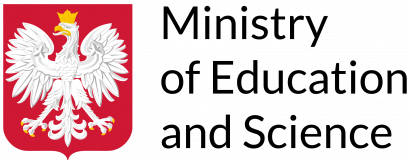Effects of Future Orientations on Income Attainment
and Social Class: An Analysis of Polish Panel Data
1
Polish Academy of Sciences
Publication date: 2011-12-14
Polish Sociological Review 2011;176(4):515-532
KEYWORDS
ABSTRACT
This paper examines the role of psychological determinants for Poles’ location in the postcommunist
social structure, above and beyond the traditional determinants of occupational achievement.
Drawing on the theory of planned behavior, I expect that peoples’ outlook on the future—whether in
terms of perceived opportunities and threats or a more general view of the times ahead—has a lasting
impact on their success, understood here as attaining higher income and/or privileged class membership.
I analyze this relation over time, considering that the current status (St) is an additive function of future
orientations (Ft−1) and earlier status (St−2). The Polish Panel Survey POLPAN 1988–2008 represents the
backbone for my analyses. In this survey a representative sample of adult Poles was interviewed in 1988
and re-interviewed in 1993, 1998, 2003 and 2008. I analyze these panel data with lag variables, using OLS
estimates and logistic regression for particular time-points. I also use cross-sectional time-series analysis
to account for autocorrelation and multicollinearity stemming form the data’s hierarchical structure.
Results support the main hypothesis in this study: consistently, thinking confidently about the future has
positive effects on earnings and on belonging to the privileged social classes. This impact is substantive and
statistically significant when prior income and social class, demographic characteristics, and education are
controlled for.
ACKNOWLEDGEMENTS
Work on this paper was supported by the Department of Sociology, Ohio State University, and the Institute Philosophy and Sociology of the Polish Academy of Sciences. I wish to thank Craig Jenkins,Randy Hodson, Kazimierz M. Słomczynski and the Polish Sociological Review reviewers for their useful comments.
Submit your paper
Call for Special Issues
Special Issues - Call for papers
Archive
Instructions for Authors
Share
RELATED ARTICLE
We process personal data collected when visiting the website. The function of obtaining information about users and their behavior is carried out by voluntarily entered information in forms and saving cookies in end devices. Data, including cookies, are used to provide services, improve the user experience and to analyze the traffic in accordance with the Privacy policy. Data are also collected and processed by Google Analytics tool (more).
You can change cookies settings in your browser. Restricted use of cookies in the browser configuration may affect some functionalities of the website.
You can change cookies settings in your browser. Restricted use of cookies in the browser configuration may affect some functionalities of the website.


